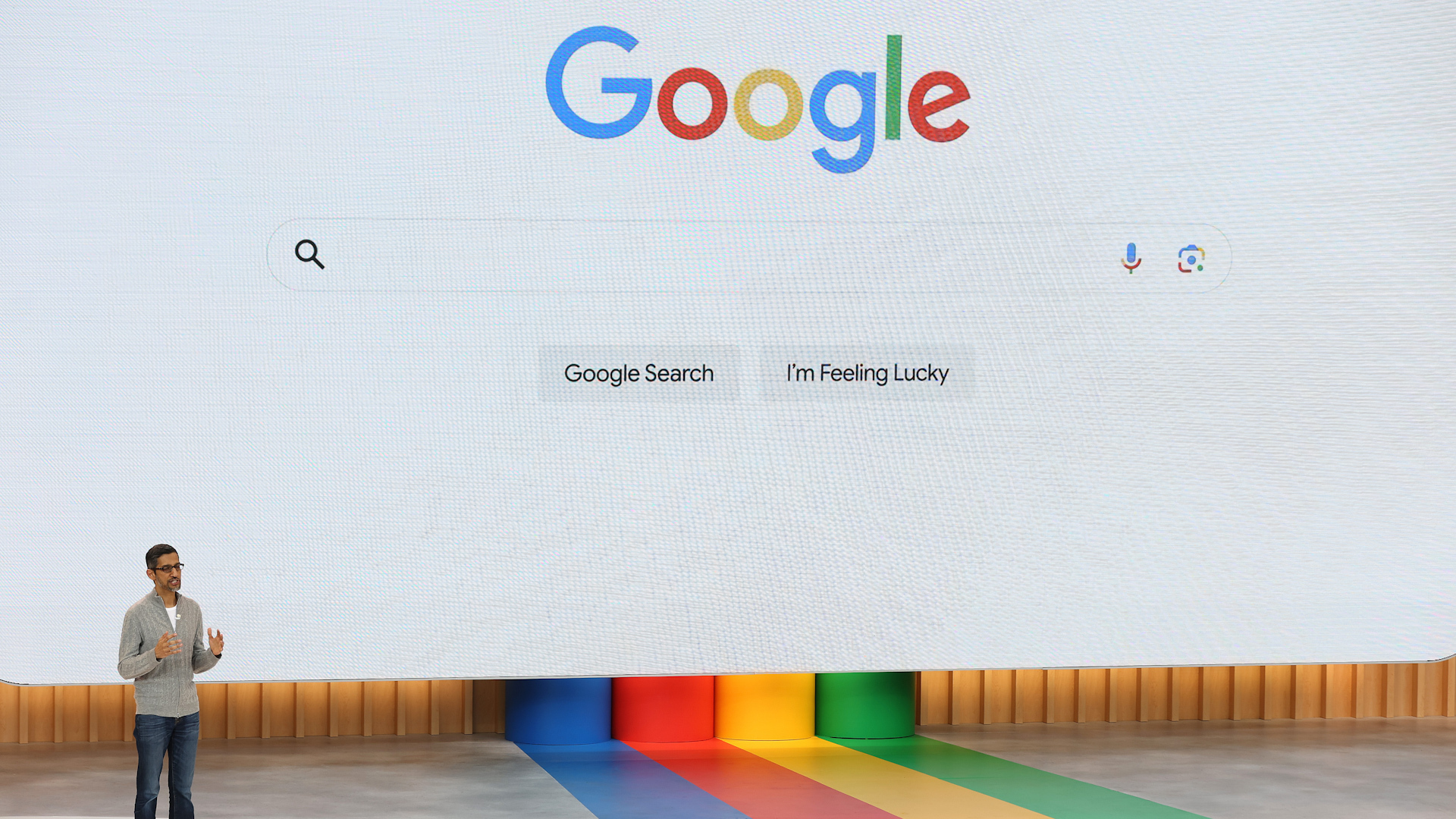
A federal judge ruled Google is a monopoly. What happens now?
Published UpdatedBy Simone Del Rosario (Business Correspondent), Brent Jabbour (Senior Producer), Emma Stoltzfus (Editor)
Google is a monopoly that illegally maintained its stranglehold on the search world, a federal judge ruled Monday, Aug. 5. It’s a major antitrust victory for the Justice Department against Big Tech, and could impact other antitrust lawsuits against Google, Apple, Amazon and Meta. Google said it plans to appeal the decision.
Media Landscape
See how news outlets across the political spectrum are covering this story. Learn moreBias Distribution
Left
Right
Untracked Bias
This Google case is years in the making. The DOJ and attorneys general from 38 states and territories sued Google for anti-competitive practices back in 2020. That resulted in a 10-week trial last year that The New York Times called the “First Monopoly Trial of the Modern Internet Era.”

Download the SAN app today to stay up-to-date with Unbiased. Straight Facts™.
Point phone camera here
The suit narrowed in on Google’s practice of paying billions to the likes of Apple and Samsung to have Google automatically handle searches on those devices. The New York Times said Google paid Apple $18 billion to be the default search engine back in 2021.
Lawyers for the government said that influence stopped competitors from being able to develop a product that could compete with Google on its massive scale. They also claimed the monopoly allowed Google to raise prices for ads shown in search results beyond what would be commanded by the market.
In a statement, Google Global Affairs President Kent Walker wrote, “This decision recognizes that Google offers the best search engine, but concludes that we shouldn’t be allowed to make it easily available.”
“We plan to appeal,” Walker added. “As this process continues, we will remain focused on making products that people find helpful and easy to use.”
During the trial, Microsoft’s CEO claimed the “oligopolistic” relationship Google had with Apple could push Google to dominate the AI race if it wasn’t stopped. Microsoft’s Bing is the closest competitor to Google when it comes to search, but it is by a very wide margin.
Meanwhile, Google’s lawyers argued the company’s search engine is winning because it’s better.
Unbiased news.
Directly to your inbox. Free!
Learn more about our emails. Unsubscribe anytime.
By entering your email, you agree to the Terms & Conditions and acknowledge the Privacy Policy.
Now the future of the search giant is in the hands of Judge Amit Mehta of the U.S. District Court for the District of Columbia. In his ruling, Mehta wrote, “Google is a monopolist, and it has acted as one to maintain its monopoly.”
This ruling does not yet come with a remedy. Mehta will have to decide if the way to correct Google’s monopoly is to potentially change the way it operates or force it to sell off part of its business.
Simone Del Rosario: Google is a monopoly that illegally maintained its stranglehold on the search world, a federal judge ruled Monday.
It’s a major antitrust victory for the Justice Department against Big Tech, and could impact other antitrust lawsuits against Google, Apple, Amazon and Meta.
This Google case is years in the making. The DOJ and attorneys general from 38 states and territories sued Google for anti-competitive practices back in 2020. That resulted in a 10-week trial last year that the New York Times called the “First Monopoly Trial of the Modern Internet Era.”
The suit narrowed in on Google’s practice of paying billions to the likes of Apple and Samsung to have Google automatically handle searches on those devices. The New York Times said Google paid Apple $18 billion to be the default search engine back in 2021.
Lawyers for the government said that influence stopped competitors from being able to develop a product that could compete with Google on its massive scale.
They also claimed the monopoly allowed Google to raise prices for ads shown in search results beyond what would be commanded by the market.
During the trial, Microsoft’s CEO claimed the “oligopolistic” relationship Google had with Apple could push Google to dominate the AI race if it wasn’t stopped. Microsoft’s Bing is the closest competitor to Google when it comes to search, but it is by a very wide margin.
Meanwhile, Google’s lawyers argued it’s winning because it’s better.
Now the future of the search giant is in the hands of Mehta. Not Facebook-parent company Meta but Judge Amit Mehta of the U.S. District Court for the District of Columbia.
In the ruling, Mehta wrote, “Google is a monopolist, and it has acted as one to maintain its monopoly.”
This ruling does not yet come with a remedy. Judge Mehta will have to decide if the way to correct Google’s monopoly is to potentially change the way it operates or force it to sell off part of its business.
For SAN I’m SDR.
Media Landscape
See how news outlets across the political spectrum are covering this story. Learn moreBias Distribution
Left
Right
Untracked Bias
Straight to your inbox.
By entering your email, you agree to the Terms & Conditions and acknowledge the Privacy Policy.
MOST POPULAR
-
 Getty Images
Getty Images
Judge allows CNN lawsuit potentially worth billions to continue
Read14 hrs ago -
 Reuters
Reuters
It’s a bird, it’s a plane, it’s the first video of Alef Aeronautics’ flying car
Watch 2:1315 hrs ago -
 Getty Images
Getty Images
Democrats in Congress receive lowest approval rating in Quinnipiac poll history
Watch 2:5917 hrs ago -
 Getty Images
Getty Images
AG Bondi reviewing Epstein documents for release, could hold client list
Watch 1:4817 hrs ago




